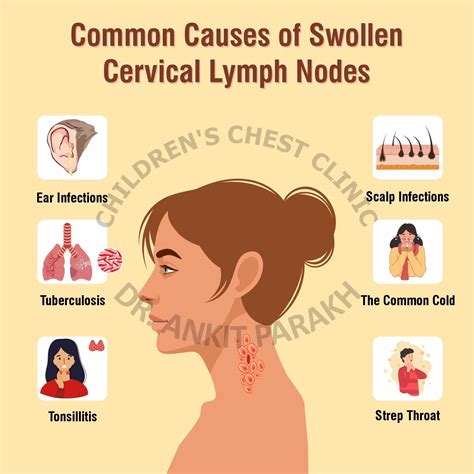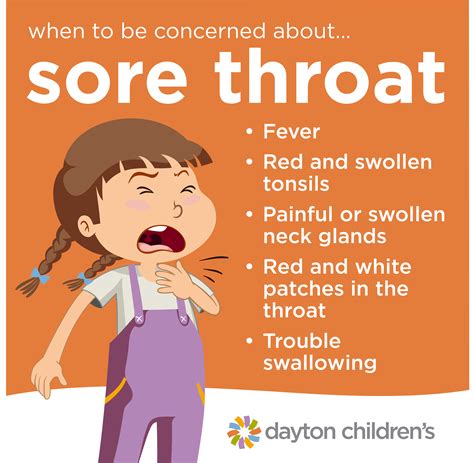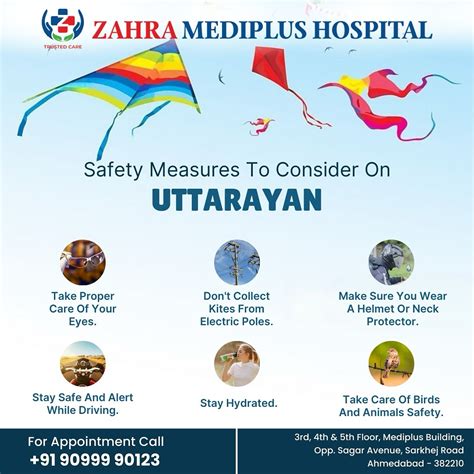Intro
Discover causes and treatments for swollen lymph nodes and sore throat, including viral and bacterial infections, and learn how to alleviate symptoms with home remedies and medical care for lymph node swelling and throat pain.
The combination of swollen lymph nodes and a sore throat can be a concerning and uncomfortable experience for many individuals. Swollen lymph nodes, also known as lymphadenopathy, occur when the lymph nodes in the body become enlarged, often in response to an infection or inflammation. A sore throat, on the other hand, can be caused by a variety of factors, including viral or bacterial infections, allergies, or irritants. When these two symptoms occur together, it can be a sign of an underlying condition that requires medical attention.
The lymph nodes play a crucial role in the body's immune system, acting as filters that help to trap and remove harmful substances, such as bacteria, viruses, and other foreign particles. When the lymph nodes become swollen, it can be a sign that the body is fighting an infection or inflammation. A sore throat, meanwhile, can be a symptom of a range of conditions, from the common cold to more serious infections like strep throat. In some cases, swollen lymph nodes and a sore throat can be related, with the swollen lymph nodes indicating that the body is responding to an infection or inflammation in the throat.
Understanding the causes and symptoms of swollen lymph nodes and a sore throat is essential for seeking proper medical attention and treatment. In many cases, these symptoms can be treated with rest, hydration, and over-the-counter medications. However, in some cases, they can be a sign of a more serious underlying condition, such as a bacterial infection or a autoimmune disorder. By recognizing the signs and symptoms of swollen lymph nodes and a sore throat, individuals can take the first step towards seeking proper medical care and recovering from their illness.
Causes of Swollen Lymph Nodes and Sore Throat

Common Causes of Swollen Lymph Nodes
Some common causes of swollen lymph nodes include: * Infections, such as the common cold, flu, or mononucleosis * Autoimmune disorders, such as rheumatoid arthritis or lupus * Bacterial infections, such as strep throat or tuberculosis * Viral infections, such as HIV or herpes * Cancer, such as lymphoma or leukemiaCommon Causes of Sore Throat
Some common causes of a sore throat include: * Viral infections, such as the common cold or flu * Bacterial infections, such as strep throat or tonsillitis * Allergies, such as hay fever or sinusitis * Irritants, such as smoke or pollution * Injuries, such as a cut or burn on the throatSymptoms of Swollen Lymph Nodes and Sore Throat

Some common symptoms of a sore throat include:
- Pain or discomfort in the throat
- Redness or swelling in the throat
- White patches or pus on the tonsils
- Difficulty swallowing or speaking
- Hoarseness or loss of voice
Diagnosing Swollen Lymph Nodes and Sore Throat
Diagnosing swollen lymph nodes and a sore throat typically involves a physical examination and medical history. A healthcare provider may perform a physical examination to check for swollen lymph nodes and other signs of infection or inflammation. They may also ask questions about the individual's medical history, such as any recent illnesses or exposures to infections.Treatment Options for Swollen Lymph Nodes and Sore Throat
Treatment for swollen lymph nodes and a sore throat depends on the underlying cause. In many cases, these symptoms can be treated with rest, hydration, and over-the-counter medications. However, in some cases, they can be a sign of a more serious underlying condition, such as a bacterial infection or a autoimmune disorder. In these cases, treatment may involve antibiotics, anti-inflammatory medications, or other therapies.Home Remedies for Swollen Lymph Nodes and Sore Throat

Preventing Swollen Lymph Nodes and Sore Throat
Preventing swollen lymph nodes and a sore throat involves practicing good hygiene and taking steps to boost the immune system. Some ways to prevent these symptoms include: * Washing hands frequently: Washing hands frequently can help to prevent the spread of infections. * Avoiding close contact with others: Avoiding close contact with others who are sick can help to prevent the spread of infections. * Getting plenty of rest: Getting plenty of rest can help to boost the immune system and reduce the severity of symptoms. * Eating a healthy diet: Eating a healthy diet that is rich in fruits, vegetables, and whole grains can help to boost the immune system. * Avoiding irritants: Avoiding irritants, such as smoke or pollution, can help to reduce the risk of a sore throat.When to Seek Medical Attention

If you are experiencing any of these symptoms, it is essential to seek medical attention right away. A healthcare provider can diagnose the underlying cause of the symptoms and provide treatment to help alleviate them.
What are the common causes of swollen lymph nodes and sore throat?
+The common causes of swollen lymph nodes and sore throat include infections, autoimmune disorders, and allergies. Infections such as the common cold, flu, or mononucleosis can cause swollen lymph nodes, while a sore throat can be caused by viral or bacterial infections, allergies, or irritants.
How can I alleviate the symptoms of swollen lymph nodes and sore throat at home?
+There are several home remedies that can help to alleviate the symptoms of swollen lymph nodes and a sore throat. These include rest and hydration, over-the-counter medications, throat lozenges, warm compresses, and saltwater gargle.
When should I seek medical attention for swollen lymph nodes and sore throat?
+It is essential to seek medical attention if the symptoms of swollen lymph nodes and a sore throat persist or worsen over time. Some signs that it is time to seek medical attention include severe pain or swelling in the lymph nodes or throat, difficulty swallowing or breathing, fever or chills, fatigue or weakness, and weight loss or loss of appetite.
If you have any further questions or concerns about swollen lymph nodes and sore throat, please do not hesitate to comment below. We would be happy to hear from you and provide any additional information or guidance that you may need. Additionally, if you found this article helpful, please share it with others who may be experiencing similar symptoms. By sharing this article, you can help to spread awareness and provide valuable information to those who need it.
